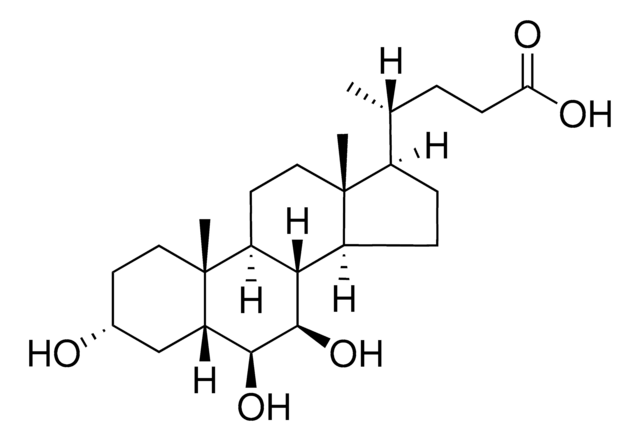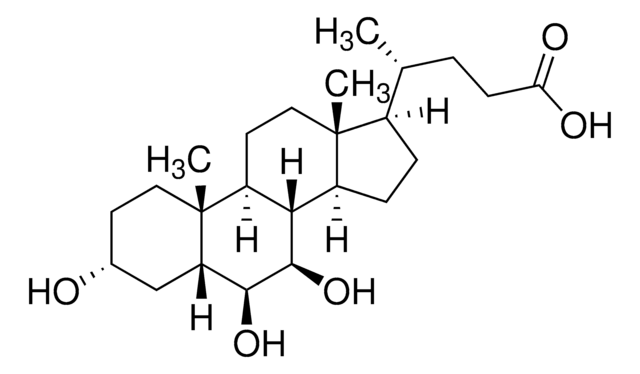MAB1976B
Anti-Integrin αVβ3 Antibody, clone LM609, biotin conjugated
clone LM609, Chemicon®, from mouse
Synonym(e):
Vitronectin Receptor, CD51/CD61
About This Item
Empfohlene Produkte
Biologische Quelle
mouse
Qualitätsniveau
Konjugat
biotin conjugate
Antikörperform
purified antibody
Antikörper-Produkttyp
primary antibodies
Klon
LM609, monoclonal
Speziesreaktivität
canine, chicken, pig, avian, human, bovine, rabbit, monkey
Darf nicht reagieren mit
mouse, rat
Hersteller/Markenname
Chemicon®
Methode(n)
flow cytometry: suitable
immunohistochemistry: suitable
immunoprecipitation (IP): suitable
Isotyp
IgG1
Eignung
not suitable for immunohistochemistry (Paraffin)
NCBI-Hinterlegungsnummer
UniProt-Hinterlegungsnummer
Versandbedingung
wet ice
Posttranslationale Modifikation Target
unmodified
Angaben zum Gen
human ... ITGAV(3685)
Allgemeine Beschreibung
Spezifität
Immunogen
Anwendung
Zellstruktur
Integrine
Immunofluorescence: 5-10 μg/mL for staining of bFGF-treated 6 mm cryosections of chick chorioallantoic membrane fixed with acetone (Brooks, 1994). LM609 is also effective on 4% paraformaldehyde fixed, frozen tissues and cells. However it is not effective for immunohistochemical staining of paraffin-embedded tissue sections.
Inhibits adhesion of cells to vitronectin coated surfaces at 10-25 μg/mL.
Optimal working dilutions and protocols must be determined by end user.
Physikalische Form
Lagerung und Haltbarkeit
Hinweis zur Analyse
POSITIVE CONTROL: Human myeloma cell lines M21 and MoalphaV (Chen, 1995).
NEGATIVE CONTROL: Mo cells (this cell line was derived from M21 but does not express integrin alphaV
Chen, 1995).
Sonstige Hinweise
Rechtliche Hinweise
Haftungsausschluss
Sie haben nicht das passende Produkt gefunden?
Probieren Sie unser Produkt-Auswahlhilfe. aus.
Lagerklassenschlüssel
12 - Non Combustible Liquids
WGK
WGK 2
Flammpunkt (°F)
Not applicable
Flammpunkt (°C)
Not applicable
Analysenzertifikate (COA)
Suchen Sie nach Analysenzertifikate (COA), indem Sie die Lot-/Chargennummer des Produkts eingeben. Lot- und Chargennummern sind auf dem Produktetikett hinter den Wörtern ‘Lot’ oder ‘Batch’ (Lot oder Charge) zu finden.
Besitzen Sie dieses Produkt bereits?
In der Dokumentenbibliothek finden Sie die Dokumentation zu den Produkten, die Sie kürzlich erworben haben.
Unser Team von Wissenschaftlern verfügt über Erfahrung in allen Forschungsbereichen einschließlich Life Science, Materialwissenschaften, chemischer Synthese, Chromatographie, Analytik und vielen mehr..
Setzen Sie sich mit dem technischen Dienst in Verbindung.








